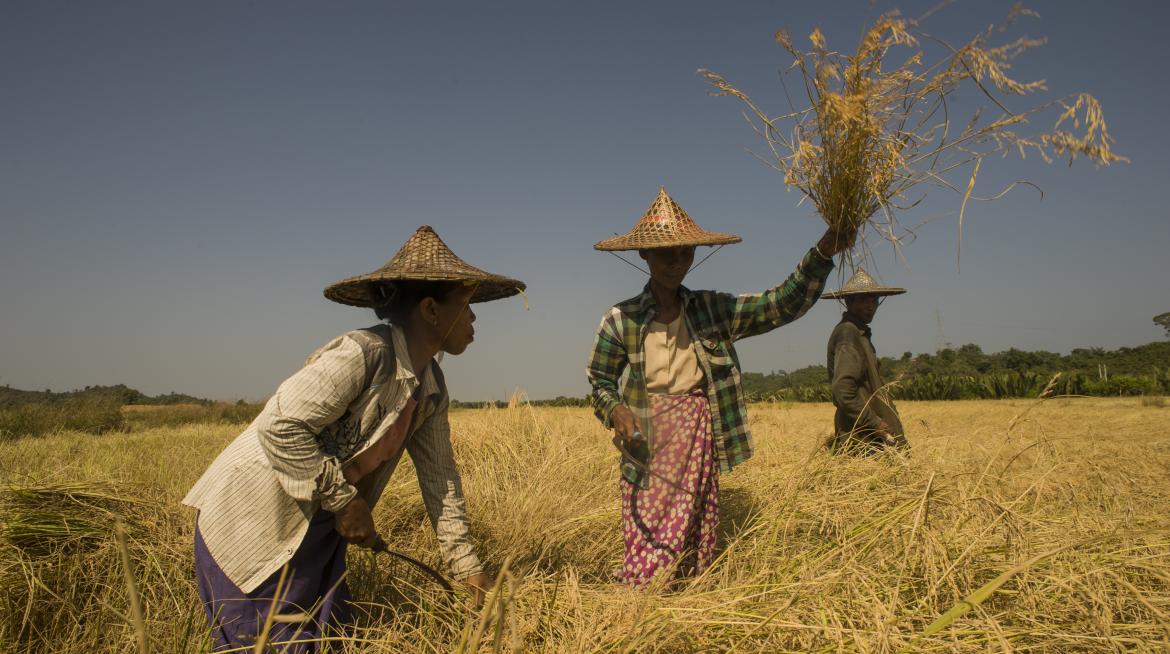
Tat Lan farmers in the Rakhine State townships of Myebon, Minbya, Kyaukphyu and Pauktaw are celebrating this year’s harvest, and breathing with relief, as they remember Cyclone Komen’s floods that destroyed 667,000 acres of paddy throughout Myanmar.
Last August, floodwaters submerged more than 36,000 acres of paddy land and farmers feared they would not be able to repay their bank loans. But, throughout Tat Lan, 4,500 farmers had planted new high yield varieties (HYV) of paddy, developed with the capacity to be salt tolerant (Sinthwelatt Saltol) or flood resilient (Shwarna Sub 1).
Approximately, 90 per cent of these HYV seeds developed at Yezin, Myanmar’s Agricultural University survived the floods and produced a harvest. Though the yield was down it met farmers’ needs and enabled them to repay their loans.
“In Kyaukphyu, no farmers are without a harvest,” said the Better Life Organisation’s Tat Lan programme manager, Dr Win Htut.
Tat Lan, funded by the Livelihood and Food Security Trust Fund, LIFT, is now supporting 45 farmers to become certified by the Department of Agriculture as seed producers, so Rakhine State farmers can have long-term sustainable access to HYV paddy seed that is flood resilient, or salt tolerant, depending on their geographic vulnerability.
Story by Jenny Macintyre, Communications Officer for Tat Lan. The Tat Lan programme is implemented by Save the Children, International Rescue Committee, Oxfam, CARE International, and Better Life Organisation.


